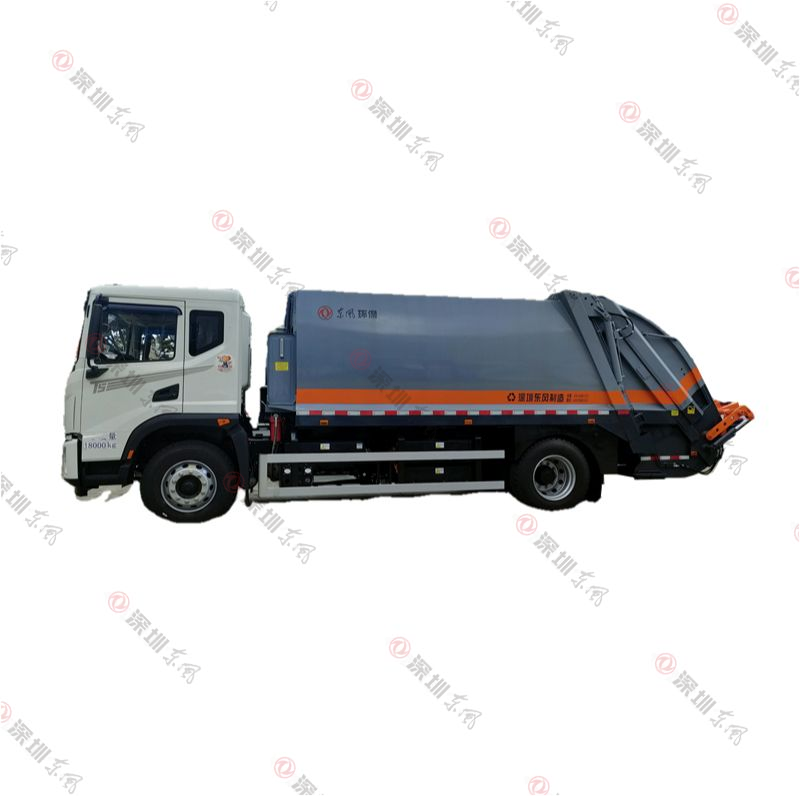Urban sanitation is a critical component of public health, environmental protection, and city management. As cities grow rapidly, managing municipal solid waste efficiently becomes increasingly challenging. Among the solutions available, compressed garbage trucks—also known as compactor trucks—have become indispensable for modern urban sanitation systems. Their growing demand is driven by multiple factors related to efficiency, cost-effectiveness, environmental compliance, and operational convenience.

One of the main reasons for the rising demand for compressed garbage trucks is their ability to compact waste directly at the source. Unlike traditional garbage collection vehicles, these trucks use hydraulic systems to compress waste, reducing its volume by up to 60–70%. This feature allows sanitation departments to:
Collect more waste per trip, reducing the number of trips required.
Decrease fuel consumption and operational costs.
Optimize routes for urban garbage collection, minimizing traffic disruptions.
In densely populated cities where streets are congested, high-capacity compacting garbage trucks have become an operational necessity.
Urban sanitation is not only about keeping streets clean—it is also about meeting strict environmental and waste management regulations. Compressed garbage trucks contribute to:
Reduced landfill load: By compacting waste, these trucks reduce the frequency of landfill trips, limiting carbon emissions from transportation.
Lower greenhouse gas emissions: Fewer trips mean less fuel consumption, directly contributing to cleaner air in urban environments.
Compliance with city waste management policies: Many cities now mandate compacting vehicles for municipal waste to maintain efficiency and environmental standards.
For eco-conscious municipalities, investing in compressed garbage trucks for urban areas aligns with sustainability goals and green city initiatives.
Though the initial investment in compressed garbage trucks is higher than standard garbage trucks, the long-term benefits outweigh the costs. Key advantages include:
Lower maintenance costs: Modern compactor trucks are designed for durability and easy maintenance.
Reduced labor costs: More waste per trip means fewer trips and fewer working hours.
Extended lifespan of collection routes: By minimizing trips and optimizing load capacity, urban waste collection systems operate more efficiently.
These financial incentives make high-performance compact garbage trucks a preferred choice for cities with tight budgets yet growing sanitation needs.
Urban waste comes in many forms, from household trash to industrial waste. Compressed garbage trucks are engineered to handle a variety of waste types, including:
Municipal solid waste (MSW)
Recyclables
Construction debris
Organic waste from food markets
Their versatility allows municipalities to standardize their waste collection operations, streamlining both residential and commercial sanitation services.
Recent innovations in garbage truck technology have made compactors smarter, safer, and more efficient. Features that increase demand include:
Automated lifting and emptying systems for bins
IoT-enabled sensors to monitor fill levels
Hydraulic systems that ensure consistent compaction
GPS tracking for route optimization and fleet management
Cities adopting smart waste management solutions increasingly rely on compressed garbage trucks as part of an integrated urban sanitation strategy.
Urban density presents unique challenges: narrow streets, heavy traffic, and limited storage space for waste. Compressed garbage trucks, with their high compaction ratio and maneuverable designs, allow sanitation crews to operate efficiently even in restricted areas. By reducing the number of trips, these trucks help maintain cleaner, safer, and more accessible streets.
With urban populations expanding rapidly, the volume of waste generated is increasing year over year. According to recent studies, cities in Asia, Africa, and Latin America are witnessing an unprecedented rise in municipal solid waste, necessitating the adoption of advanced waste collection vehicles. Compressed garbage trucks are ideal for cities looking to scale their waste management infrastructure quickly and efficiently.
The rising demand for compressed garbage trucks in urban sanitation is driven by a combination of operational efficiency, environmental compliance, cost-effectiveness, and technological innovation. For municipalities facing growing populations, increased waste volumes, and stricter environmental regulations, investing in modern compressed garbage trucks is not just a convenience—it is a necessity. As cities continue to evolve, these vehicles will remain at the forefront of efficient and sustainable urban waste management.